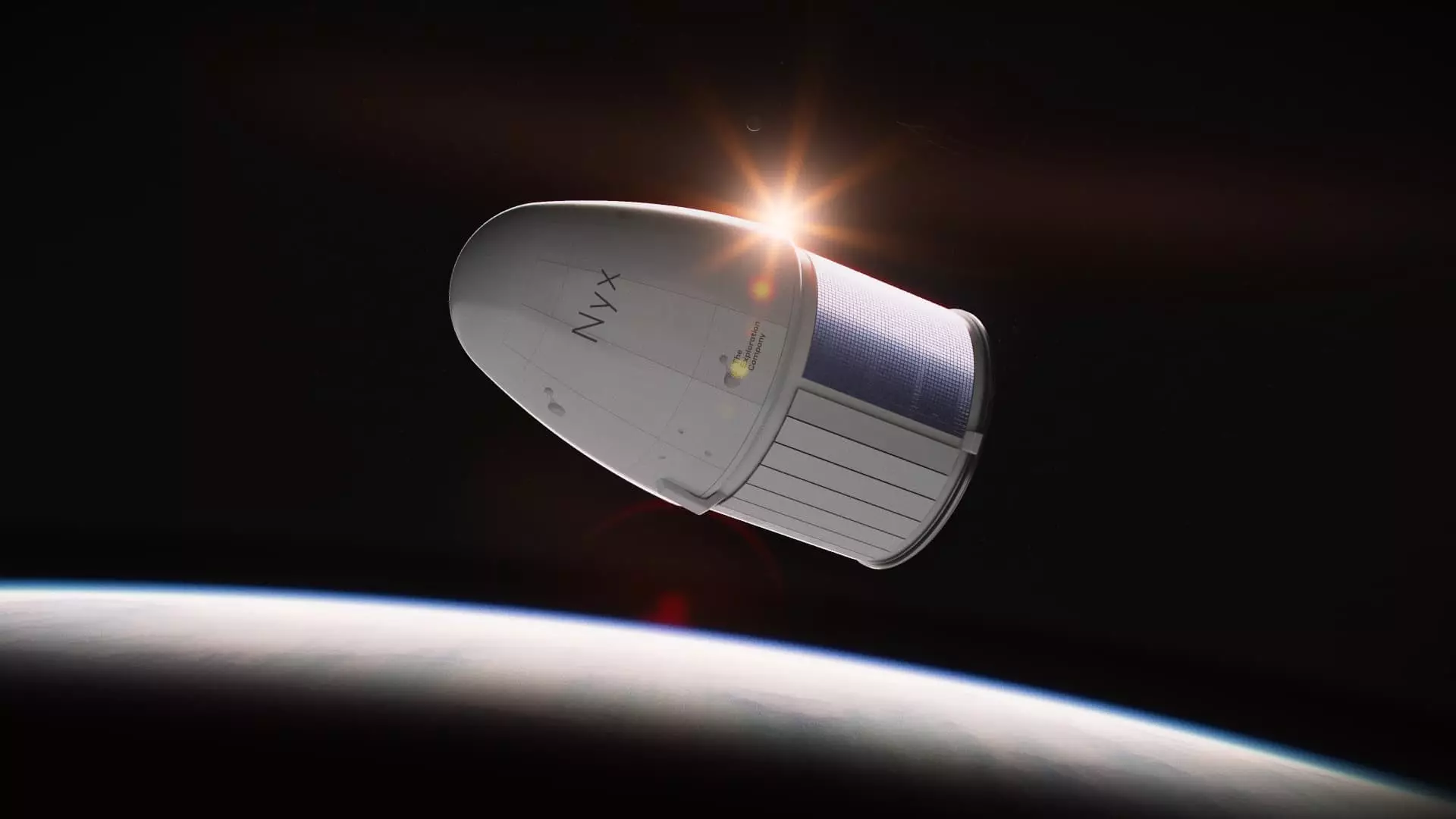In a significant move for the commercial space industry, The Exploration Company (TEC) recently announced that it has secured $160 million in funding aimed at advancing its innovative Nyx capsule, designed for transporting both astronauts and cargo to space stations. This financial boost, spearheaded by notable venture capital firms such as Balderton Capital and Plural, signals a growing interest in space exploration ventures, particularly as global aspirations towards space travel intensify. Alongside these major investors, governmental support from French and German sources underscores the importance of public-private partnerships in this sector.
At the core of TEC’s vision is the Nyx capsule, a reusable transport vehicle that promises to revolutionize space missions. This technology allows for launching from rockets into the expanse of space, safely delivering its payload, and re-entering the Earth’s atmosphere for subsequent reuse. The reusability of Nyx aligns with the broader industry trend of reducing costs and enhancing the feasibility of regular space missions. Hélène Huby, the founder and CEO, envisions Nyx not just as a mere transport system but as an integral component of increasing operational capacity in European space exploration.
During an interview with CNBC, Huby emphasized the market’s potential, projecting a steady growth rate of over 10% due to heightened interest from various nations eager to engage in astronaut missions and lunar expeditions. This marks a pivotal moment: the burgeoning demand for space travel and the limited number of players in the field create a promising landscape for TEC’s offerings.
Despite TEC’s optimistic outlook, the company faces formidable competitors, most notably SpaceX, which operates the well-established Dragon capsule. Other players in this domain consist of Chinese and Russian enterprises, further complicating the competitive scenario. However, Huby articulates a clear rationale for TEC’s aspirations: Europe needs its own robust space transportation capabilities to foster independence and viability in the sector. By developing Nyx, TEC aims to provide an alternative to the current market dominance held by SpaceX, ensuring that Europe is not reliant on a singular entity to meet its space exploration ambitions.
With plans to launch an updated version of Nyx in the upcoming year and a final model by 2028, TEC is strategically positioning itself within the timeline of evolving space exploration objectives. The inclusion of the European Space Agency as a key financial backer for the project not only legitimizes TEC’s mission but also highlights the collaborative spirit evident in modern space endeavors.
The company’s trajectory is further complemented by robust contractual commitments. Huby revealed that TEC has already signed $800 million in contracts, establishing collaborations with noteworthy organizations like Starlab and Axiom Space. These contracts will utilize the Nyx capsule for various missions, effectively demonstrating the demand for such revolutionary technology.
This influx of activity comes on the heels of a global resurgence in space-related projects spearheaded by nations such as China, the United States, and India. A notable highlight in current space initiatives is NASA’s Gateway project, set to be the first lunar-orbiting space station, which reflects the international trend toward collaborative and competitive efforts in space.
Huby’s vision extends beyond the transportation of astronauts; she recognizes an increasing need for cargo transport as more missions involve people venturing beyond Earth. The coupling of crewed flights and cargo transport necessitates efficient solutions, and TEC is keen to fulfill this growing demand. The technology being developed by TEC is integral not only for launching payloads into orbit but also for facilitating the return of that cargo back to Earth, an essential component of sustainable space travel.
As the landscape of space exploration evolves, The Exploration Company is positioning itself as a pivotal player. By bridging the gap between ambition and capability, TEC’s work on the Nyx capsule reflects the convergence of technology, investment, and global interest in the vast possibilities that lie beyond our planet. The company’s progress serves as a beacon, illustrating that the future of space travel is not just a distant dream but an imminent reality.


Leave a Reply